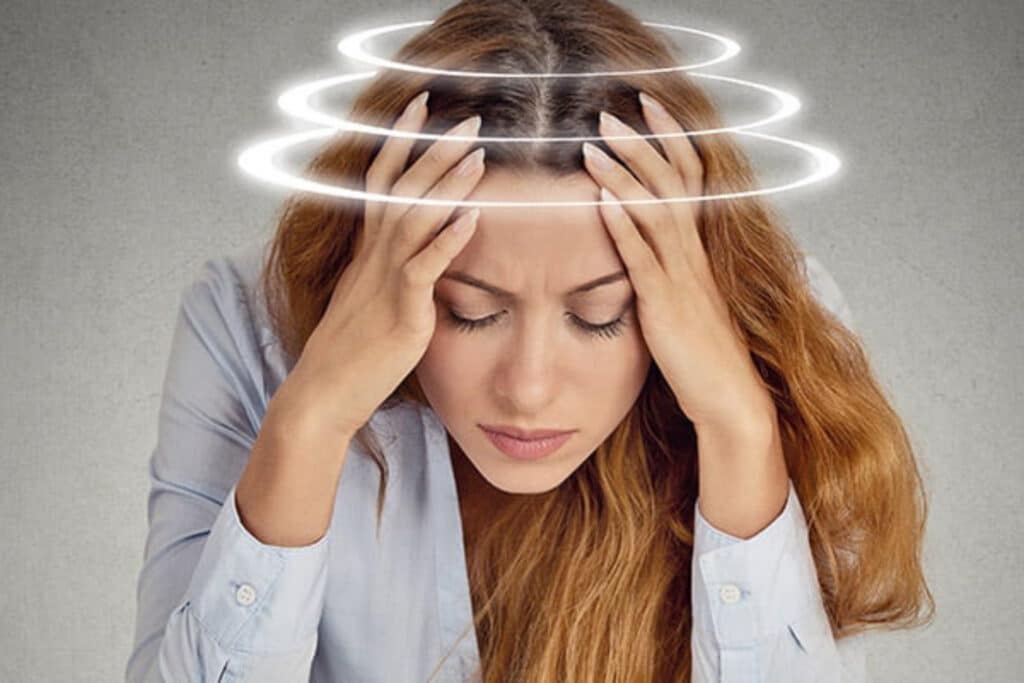Vertigo and dizziness are common conditions that affect millions of people each year. While there are many causes of these symptoms, including inner ear problems and head injuries, did you know that your diet could also be a contributing factor? Certain foods and drinks have been known to trigger or worsen vertigo and dizziness in some people. In this article, we’ll explore 10 surprising foods that you may want to avoid if you’re experiencing these symptoms. By making some simple dietary changes, you may be able to manage your symptoms and feel better.
Can Your Diet Really Make Vertigo and Dizziness Worse?
Before we dive into the foods themselves, let’s address the debate around whether diet can impact vertigo and dizziness. Some experts believe that certain foods and drinks can worsen these symptoms, while others are more skeptical. However, there is some evidence to suggest that a healthy diet can help manage vertigo and dizziness, so it’s worth considering what you’re eating.
Top 10 Foods That Trigger Vertigo and Dizziness
If you’re experiencing vertigo or dizziness, it may be helpful to take a look at your diet and see if there are any trigger foods you should avoid. While this list is by no means comprehensive, here are 10 foods that are known to cause problems for some people:
1. Salt
Salt is a common ingredient in many foods, but consuming too much of it can lead to dehydration, which can cause dizziness and lightheadedness. In addition, sodium can affect blood pressure, which is another factor that can contribute to vertigo. To reduce your intake of salt, try to avoid highly processed foods, which often contain large amounts of sodium. Instead, opt for fresh fruits and vegetables, whole grains, and lean proteins.
2. Caffeine
Caffeine is a stimulant that can affect the inner ear, which is responsible for balance and equilibrium. In some people, consuming too much caffeine can lead to vertigo or dizziness. If you’re experiencing these symptoms, try cutting back on your intake of coffee, tea, soda, and other caffeinated beverages.
3. Alcohol
Like caffeine, alcohol can affect the inner ear and cause vertigo or dizziness. In addition, alcohol can also dehydrate you, which can worsen these symptoms. To minimize your risk of vertigo from alcohol, try to limit your intake of beer, wine, and liquor.
4. MSG
MSG, or monosodium glutamate, is a flavor enhancer that is often added to processed foods, such as chips, crackers, and frozen dinners. Some people are sensitive to MSG and may experience vertigo or dizziness as a result. To avoid MSG, read food labels carefully and try to stick to fresh, whole foods whenever possible.
5. Tyramine
Tyramine is a naturally occurring compound found in many foods, including aged cheeses, cured meats, and fermented foods like sauerkraut and kimchi. Some people are sensitive to tyramine and may experience vertigo or headaches after consuming these foods. To reduce your intake of tyramine, try to avoid these foods or opt for fresh, unprocessed versions instead.
6. Dairy Products
Some people may experience vertigo or dizziness after consuming dairy products, especially if they are lactose intolerant or have a milk allergy. To minimize your risk, try to avoid or limit your intake of milk, cheese, and other dairy products. You can also try lactose-free or plant-based alternatives.
7. Chocolate
Chocolate contains both caffeine and tyramine, which can both trigger vertigo and dizziness. If you’re experiencing these symptoms, try cutting back on your intake of chocolate or opting for dark chocolate, which typically contains less caffeine and tyramine. You can also try carob or cocoa powder as a substitute.
8. Processed Foods
Processed foods often contain high levels of salt, sugar, and preservatives, which can all contribute to vertigo and dizziness. To reduce your risk, try to limit your intake of processed snacks, fast food, and convenience foods. Instead, opt for fresh, whole foods that are low in sodium and sugar.
9. Sugary Foods and Drinks
Consuming too much sugar can lead to spikes and drops in blood sugar, which can cause dizziness and lightheadedness. To minimize your risk, try to limit your intake of sugary snacks, desserts, and drinks. Instead, choose fruits, vegetables, and whole grains, which provide a steady source of energy without the blood sugar spikes.
10. Fried Foods
Fried foods can be hard to resist, but they can also contribute to vertigo and dizziness. When foods are fried, they become high in fat, which can slow down digestion and make you feel lightheaded or dizzy. To reduce your risk, try to limit your intake of fried foods and choose baked or grilled options instead.
Do This 5-Second Method to Fight Vertigo & Stop Dizziness (Watch Video)
Can a simple and natural method put an end to “years of pain and suffering” and ease even the most stubborn cases of vertigo?
According to a top US neurologist – this new method may change the lives of people who suffer from vertigo.
In fact, it already helped more than 13,000 Americans to eliminate 85%-99% of their discomfort.
“It’s crucial for people to take action and address the real, root cause. Vertigo can lead to more dangers than people realize… It’s not just discomfort, in some cases, it can be a real danger”
Now, for the first time ever, he created a short video explaining the true root cause of vertigo & dizziness, plus, what you can do about it right away (step by step) before it continues eating away at your health more than it already has.
So far, the reviews have been stunning, with some viewers saying they saw major improvement in a matter of weeks or even days.



